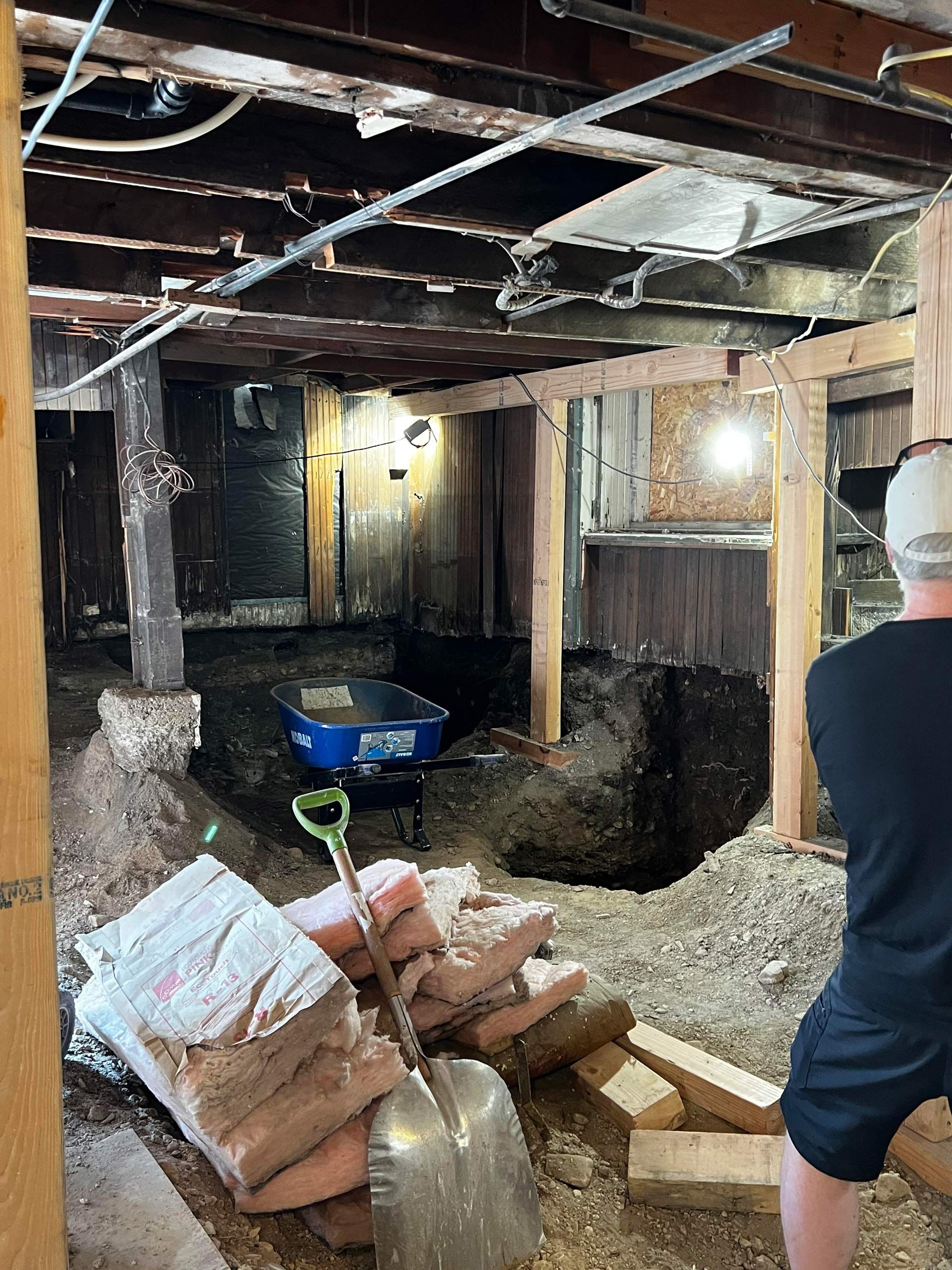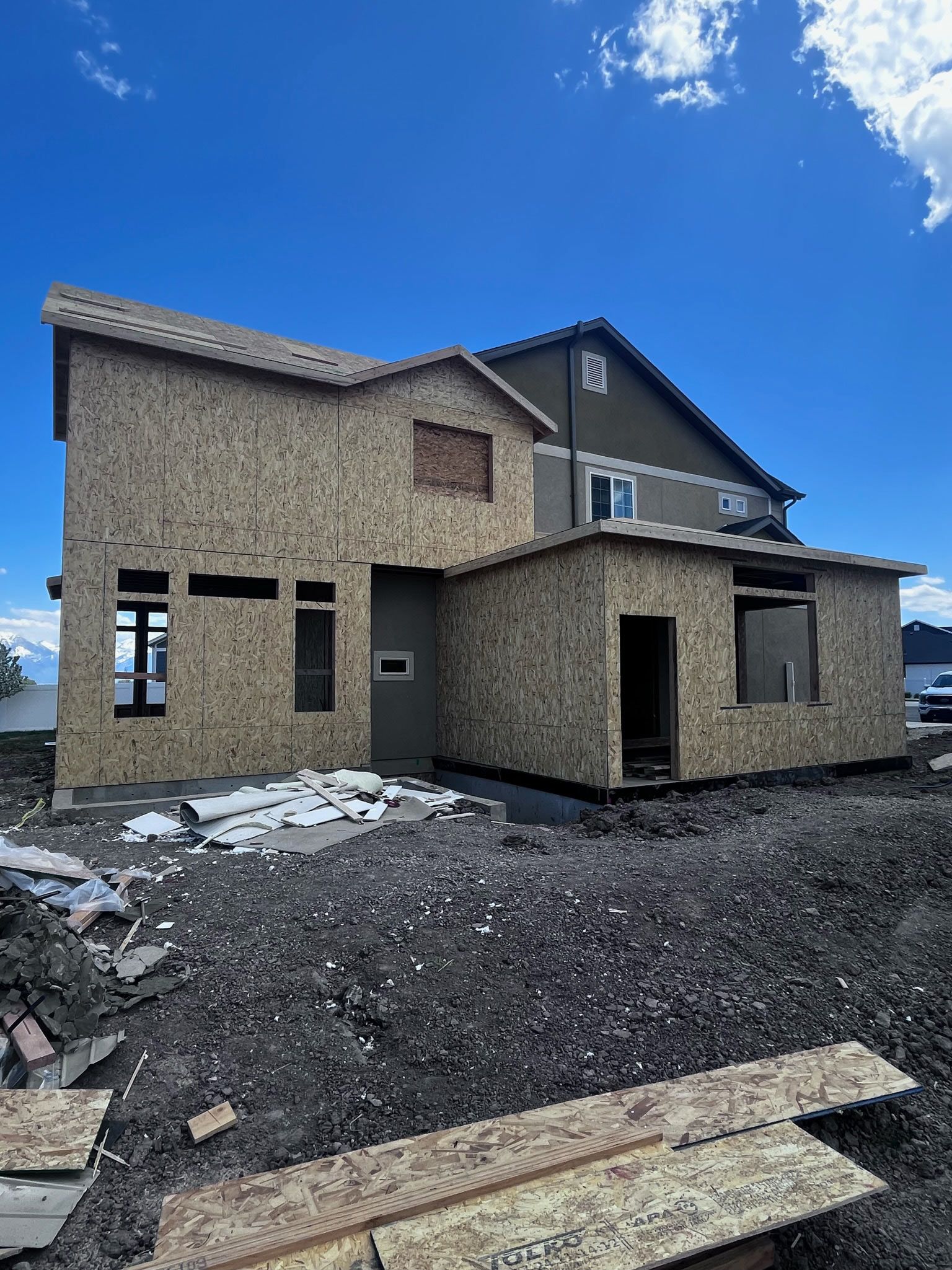Hidden Costs of Basement Finishing & How to Avoid Them

Hidden Costs of Basement Finishing & How to Avoid Them
Finishing a basement adds valuable living space to your home, but many homeowners underestimate the true cost of the project. The price tag isn’t just about flooring, drywall, and lighting—unexpected expenses often arise, pushing the budget higher than planned.
Permits, moisture issues, and necessary upgrades to electrical or plumbing systems can add thousands of dollars to the total cost. Without proper planning, these hidden costs can quickly lead to overspending.
This guide breaks down the most common hidden costs in basement finishing and how to avoid costly surprises so you can keep your project on budget.
Why Does Basement Finishing Cost More Than Expected?
Many homeowners start a basement finishing project expecting to pay only for materials and labor. But unexpected expenses often arise, increasing the overall cost.
Some of the biggest reasons for budget overruns include:
- Permit fees and inspection costs that weren’t factored in
- Hidden structural issues like water damage or foundation cracks
- Electrical and plumbing upgrades needed for code compliance
- Material costs that fluctuate based on availability and quality
Understanding these hidden costs before starting can help you plan ahead and avoid surprises.
Common Hidden Costs in Basement Finishing
Even with careful budgeting, unexpected costs can add up quickly. Here are some of the most common hidden expenses homeowners encounter when finishing a basement.
Permit Fees & Inspection Costs
Many cities and counties require permits for electrical, plumbing, HVAC, and structural changes. The cost varies by location but can range from a few hundred to several thousand dollars.
Skipping permits might seem like a way to save money, but it can lead to fines, failed inspections, and costly rework if your basement isn’t up to code. Always check with your local building department before starting.
Structural Repairs & Waterproofing
Basements are prone to moisture issues, and existing problems often become more noticeable once construction begins. Hidden issues like:
- Cracks in the foundation
- Mold or mildew growth
- Water leaks or poor drainage
These problems can increase costs by thousands of dollars if waterproofing solutions like sump pumps, vapor barriers, or exterior drainage systems are needed. Fixing these issues before finishing the basement prevents future damage and costly repairs.
Upgrading Electrical & Plumbing Systems
Older homes may require electrical panel upgrades or new plumbing lines to handle added fixtures like bathrooms, wet bars, or laundry rooms.
Common hidden costs include:
- Adding or upgrading electrical circuits ($500–$2,000)
- Rewiring for extra outlets and lighting ($1,500–$4,000)
- Running new plumbing lines for a basement bathroom ($3,000–$10,000)
If your home’s existing systems aren’t up to code, upgrading them is necessary to pass inspections and prevent safety hazards.
Unexpected Material & Design Expenses
The cost of finishing a basement isn’t just about labor. Material choices, design upgrades, and necessary adjustments can quickly add to your expenses.
Moisture-Resistant Drywall & Insulation
Standard drywall doesn’t hold up well in basements due to higher humidity levels. Many homeowners need to upgrade to mold-resistant drywall, which costs more but prevents future water damage.
Similarly, insulation plays a key role in temperature control and energy efficiency. Some states require basement insulation to meet energy codes, adding an extra expense homeowners don’t always expect.
Flooring That Holds Up in a Basement
Not all flooring works well in basements. Carpet can trap moisture, while hardwood can warp from humidity. The best options—like vinyl plank, tile, or engineered wood—often cost more than homeowners originally budget for.
Additional costs include:
- Subfloor installation for warmth and moisture protection
- Waterproof underlayment to prevent mold growth
- Leveling the concrete slab before laying flooring
Choosing the right flooring prevents costly repairs down the road, even if it means a slightly higher upfront investment.
Additional Lighting & HVAC Adjustments
Basements typically have limited natural light, so extra lighting is often needed. Homeowners may need to install recessed lights, wall sconces, or pendant lighting, which can increase electrical costs.
Additionally, basement renovations sometimes require HVAC upgrades to ensure proper airflow. Extending ductwork or adding a separate heating/cooling unit can add unexpected expenses to the project.
Labor Costs & Project Timeline Extensions
Even with a solid plan, unexpected labor costs can increase your basement finishing budget. Delays, change orders, and DIY mistakes often lead to higher costs and longer timelines.
Contractor Change Orders & Extra Labor Fees
Many homeowners start with a basic basement remodel plan, only to make changes mid-project. While some adjustments are unavoidable, every change order adds labor and material costs.
Common reasons for change orders include:
- Deciding to add a basement bathroom after framing has started
- Upgrading to custom-built shelves, cabinets, or bars
- Changing flooring, lighting, or room layout once construction begins
Contractors charge extra for last-minute design changes, so finalizing your plan before work starts can help prevent budget creep.
DIY Mistakes That Cost More to Fix
Many homeowners try to cut costs by handling parts of the remodel themselves. While DIY works for painting or installing trim, major tasks like plumbing, electrical, and framing should be left to professionals.
Common DIY mistakes that lead to higher costs:
- Incorrect framing that needs to be redone for inspections
- Improperly installed electrical work, leading to rewiring costs
- Waterproofing mistakes, causing future leaks and mold growth
Fixing these issues often costs more than hiring a contractor upfront. If you're planning to DIY, stick to smaller, non-structural tasks to avoid expensive corrections.
How to Avoid Hidden Costs in Basement Remodeling
Planning ahead helps keep your basement finishing project on budget. Here are the best ways to avoid unexpected expenses and prevent costly mistakes.
Get a Detailed Estimate Before Starting
A clear, itemized estimate from a contractor prevents budget surprises. The estimate should include:
✔
Labor costs for framing, electrical, plumbing, drywall, and flooring
✔
Permit fees required for your area
✔
Material costs, including insulation, waterproofing, and finishes
✔
Potential additional costs, like HVAC adjustments or structural repairs
Comparing multiple estimates ensures you’re getting a fair price without hidden fees.
Plan for a 10-20% Contingency Budget
Even with careful planning, unexpected costs arise. Setting aside an extra 10-20% of your budget allows you to cover:
- Permit delays or extra inspections
- Material price increases
- Unexpected repairs, like water damage or foundation issues
Having this buffer prevents financial stress and keeps your project moving forward.
Ensure Permits & Inspections Are Done Early
Skipping permits or delaying inspections can result in hefty fines and even require redoing parts of the remodel. Before starting, confirm that:
✔
All necessary permits are approved
✔
Inspections are scheduled at the right phases (electrical, plumbing, structural)
✔
Work meets local building codes to avoid costly corrections later
Handling this upfront prevents expensive delays and compliance issues.
Budget Smart for Your Basement Remodel
Finishing a basement can add valuable living space to your home, but hidden costs can quickly derail your budget. Many homeowners underestimate permits, structural repairs, electrical upgrades, and material costs, leading to unexpected expenses.
By planning ahead, securing detailed estimates, and setting aside a contingency budget, you can avoid common financial pitfalls. Investing in proper waterproofing, insulation, and professional labor ensures a high-quality basement that won’t require costly repairs later.
A well-planned basement remodel not only increases your home’s value but also gives you functional, comfortable living space without breaking the bank.
Work With Foundation Finishes for Transparent Pricing
Looking for a basement finishing expert with no hidden fees?
Foundation Finishes in Centerville, UT provides:
✔
Basement Finishing
✔
Home Remodels
✔
Home Additions
✔
Bathroom & Kitchen Remodeling
Get clear, upfront pricing and expert craftsmanship from a team you can trust.
📞 Contact Foundation Finishes today for a free consultation!


